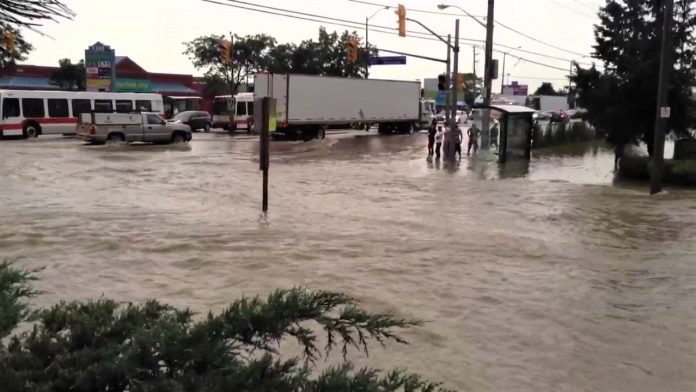
A mild winter with less snow and more rain, so far, has prompted Mississauga to ring the climate change alarm and encourage its residents to think about how it is affecting the city!
Although the presence of a strong El Niño is one of the reasons for the warm winter, climate change is another significant factor causing the shift in temperatures.
In 2023, Mississauga saw warm weather in the spring, a hotter summer affected by wildfire smoke, milder than average temperatures in the fall and a warmer start to winter with minimal snow.
According to the UN’s State of the Global Climate Report, the past nine years (2014-2023) have been the warmest on record. Compared to other countries, Canada is warming twice as fast.
Environment and Climate Change Canada predicts a 50 to 60 per cent chance of above-normal temperatures from January through March. Every degree of temperature change, even one degree warmer, can impact the environment significantly. This could mean more flooding, wildfires or intense heat waves.
A 2023 assessment of climate-related risks from the City of Mississauga provides more details on climate projections. The city says that emperatures are trending warmer across all seasons. The average annual temperature is expected to increase by 3.4 degrees Celsius in the 2050s and 5.7 degrees Celsius in the 2080s.
Rainfall is also expected to increase in volume and intensity, with more frequent and intense precipitation, Mississauga warns. Projections also include hotter summers, a decrease in snow during winter and the timing of seasons is expected to shift. Extreme events like lightning and thunderstorms, snowstorms, freezing rain, hail, powerful winds, droughts, wildfires, flooding and storm surges are expected to become more intense due to a warmer and hotter future climate.
“With all these alarming projections, everyone needs to take steps to reduce carbon emissions and adopt sustainable practices to mitigate the effects of climate change,” Mississauga said in an article on its website.
These actions can include switching to using an electric vehicle, using electric heat pumps for heating and cooling, using sustainable transportation like walking, biking or public transit, reducing your waste, shopping local and eating more plant-based foods.
This year, 44 per cent of Mississauga’s budgeted projects will have some aspect of climate change mitigation and adaptation. These projects will include hybrid buses, park acquisitions, electric-vehicle charging stations, bike lanes, sidewalks, buildings with solar panels, and more. This capital spending of almost $263 million will help advance the city’s goal of achieving net zero. These investments will lead to cleaner air, less traffic and healthier neighbourhoods.
“Investing in these meaningful actions will help us reduce greenhouse gas emissions, and create a greener, more resilient Mississauga,” the city said.




